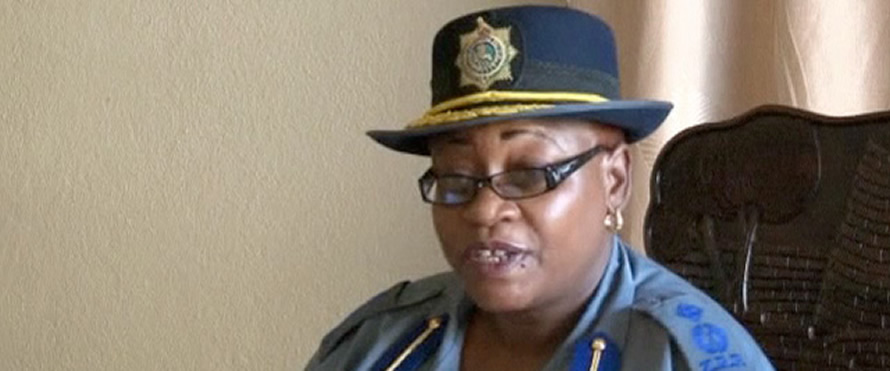
The Sunday News

FAILURE by Government to pay cash for goods and services delivered is adversely affecting the viability of local companies with reports that more than US$800 000 is owed to three firms by the Zimbabwe Republic Police for uniforms.
This development has led to a number of firms closing down while others have retrenched after failing to get cash for goods and services supplied to Government institutions.
In an interview with Sunday Business last week in Bulawayo, the National Employment Council for Clothing Industry general secretary Mr Justice Mashinti expressed concern that the clothing industry problems were being worsened by Government’s delays to pay for goods supplied to its institutions.
“The police department made an order for uniforms and they didn’t pay. We had one company employing 120 people and it closed after the police failed to pay for the uniforms delivered. The company owed six months salaries for workers and the workers went home empty handed and some of them are destitute now,” he said.
He said it was baffling that the Government, however, pays cash when buying goods from abroad.
“You see the irony is that when Government departments buy goods from outside, they pay cash upfront but when they are buying from local companies, they don’t pay,” he said.
Mr Mashinti said some of the clothing companies that were owed money by Government included James North Zimbabwe which is owed $448 615, Throbs (Pvt) Limited $323 022 and Saybrook (Pvt) Limited $48 699.
Sunday Business is in possession of the letter written by the NEC to the police and Government demanding payment.
Part of the letter reads: “The above mentioned companies (James North Zimbabwe, Throbs and Saybrook) have appealed to the NEC for the clothing industry to approach ZRP on their behalf so that amicable payment can be arranged with them. It is because we value the business relationships between companies in our sector and Government departments like police that we advocate for amicable payment plans that do not suffocate both parties in these difficult times.
“For some time now these companies have been applying to the NEC for the clothing industry to be allowed to adopt measures to avoid closure or retrenchments emanating from the fact that the amounts they are owed have implications on their operations.
It is for this reason that as NEC we are appealing to your good office to agree to reasonable payment plans with these companies that may go a long way in preventing the closure of these companies and the resultant retrenchment of workers. The crises at these companies have reached critical levels,” read the letter.
Contacted for comment, police spokesperson Senior Assistant Commissioner Charity Charamba said the police department was not responsible for payment of those companies but the Treasury.
“It is not the police which is supposed to pay but the Treasury,” she said briefly.
Investigations by Sunday Business also revealed that a number of companies were battling to recover their money from Government.
A local shoe firm, Eagle Italian Shoes and Leather, was reportedly forced to shut down after Government failed to pay more than US$3,5 million for combat boots supplied to the army, police and prison services.
The debts stretch back to as far as three years.
Another clothing company Diesel Gear is reportedly owed US$339 576 by the Government for uniforms supplied to the police force.
Parastatals and Government institutions have not been spared by Government’s failure to pay for goods and services delivered.
TelOne chief executive officer Mrs Chipo Mutasa recently said that the telecommunications company was owed about $190 million by its clients in outstanding service bills.
Of this amount, Government parastatals and departments owe the company about $40 million.
In April this year, Netone chief executive officer Mr Reward Kangai also revealed that Government’s US$1,1 million debt had hampered implementation of several projects lined up by the telecommunications company.
Mr Kangai told the Parliamentary Portfolio Committee on Information Communication Technology, Postal and Courier Services that the matter had since been referred to the Ministry of Finance to expedite the debt payment.
In July this year it was also reported that Government’s failure to pay local fertiliser companies had affected the sector.
According to Finance Minister Patrick Chinamasa, government owes US$11,8 million to seed houses and fertiliser companies.
Last year, Government imported fertiliser to meet a national requirement of 200 000 tonnes of Compound D and 200 000 tonnes of ammonium nitrate after local companies failed to meet demand due to viability challenges.
Last month, Harare City Council (HCC) also bemoaned that the Government and parastatals also owed it over $10 million.
Recently, the Ministry of Finance said domestic debt rose to $1 billion by June 25, 2014 from $994 million as at December 31, 2013.
As of year end December 2013, Zimbabwe’s total external debt amounted to $8,915 billion.
Efforts to get a comment from the Treasury were futile but Minister Chinamasa reportedly said Government was making frantic efforts to engage its creditors on how to repay the debts.
He recently said the country’s debt overhang had become a serious impediment to the Zimbabwe Agenda for Sustainable Socio-Economic Transformation(Zim Asset).
An independent economist, Mr Partson Dube, told this paper that the Government should put its house in order and pay what it owed to the local companies.
“The Government should pay Caesar what belongs to Caesar. Some of these companies would have used the little resources or borrowed money from banks to make these goods for Government, hoping to pay back the money once the goods are paid for, but if the Government is not paying how does one operate?” said Mr Dube.
He said efforts to revive local companies would remain a pipedream if companies did not get paid on time for goods delivered.
Mr Dube said Government’s debt had also negatively impacted on the country’s credit rating.
He said having a good credit rating was critical in attracting new foreign direct investment.



